ChemSAR Final Conference: ChemSAR WORK MUST CONTINUE
The developed operational plan and standard operational procedures for maritime HNS incidents have been long-awaited. Many of the expert speakers at the ChemSAR Final Conference emphasized the importance of the work the project has done during the past three years. Now it is time to start implementing them in practice and also to disseminate them further. ChemSAR achievements were presented to an audience of one hundred persons in the ChemSAR Final Conference taken place in Helsinki on 6 February 2019.
Markku Mylly, Principal Adviser, previously Executive Director of the European Maritime Safety Agency (EMSA), opened the ChemSAR Final Conference by giving background information and statistical data of incidents in relation to shipping. The transportation of chemicals is increasing rapidly as is the number of different chemicals. According to EMSA statistics, there are over 100 serious accidents in the European waters each year. So, the field ChemSAR has been and still is tackling is getting more and more complicated. Mylly stressed that although the Flagship project ChemSAR is soon coming to its end, it is not a stop for the work started. The implementation of the guidelines in practice must continue. If not, the money spent is wasted. He encouraged the national authorities to do their best for the implementation of the results of ChemSAR project. It is important to share the gained information and lessons learnt with other European Union member states.
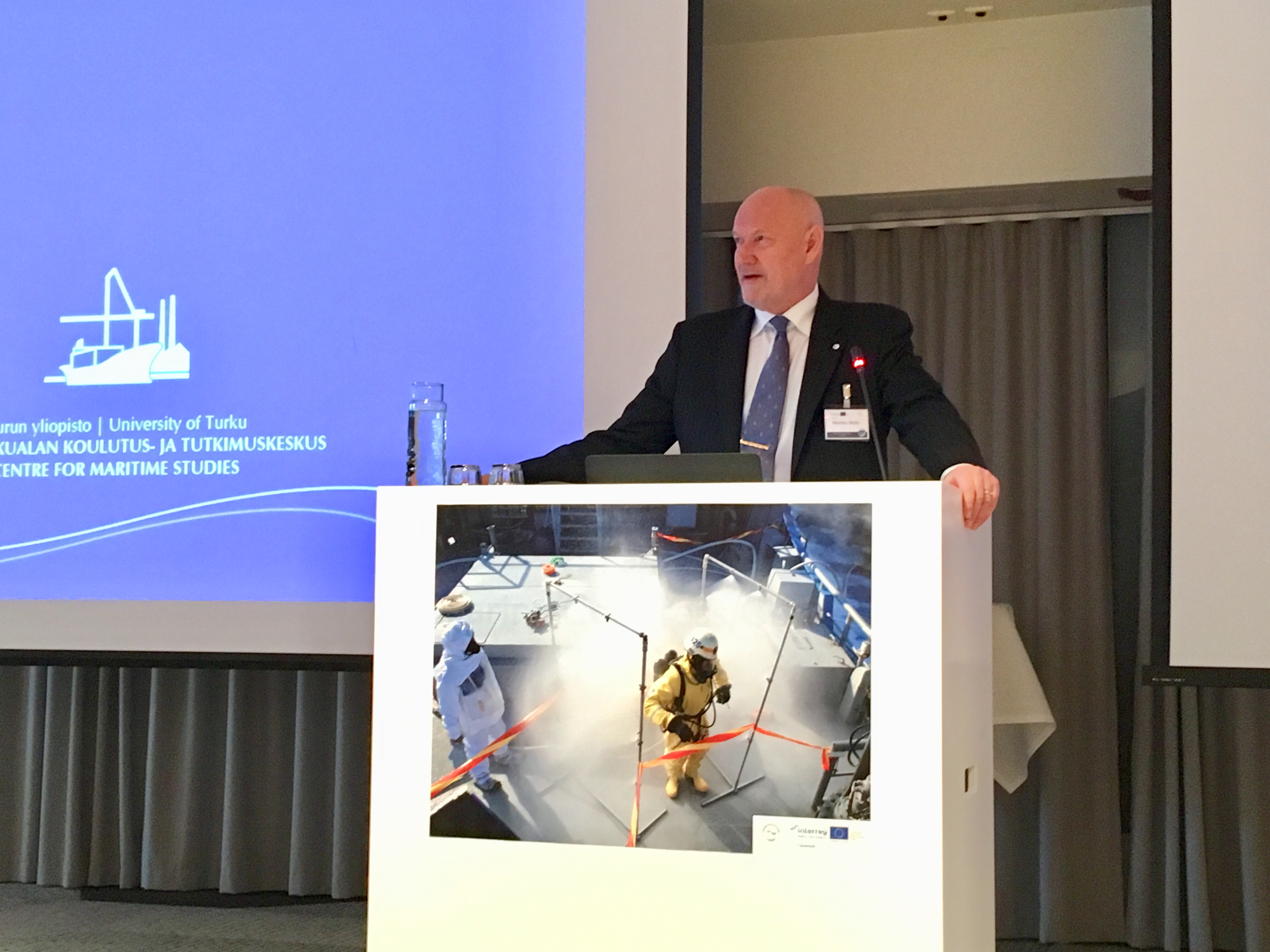
Kirsi Laitio, ChemSAR Project Coordinator at the Centre for Maritime Studies of the University of Turku was very pleased with the outcome of the project. The comments heard from the rescue authorities and audience all emphasized the importance and necessity of the guidelines ChemSAR partners had created. She also reminded that the dissemination and implementation work are already ongoing, not just within ChemSAR but also in the recently started ResQU2 Project Platform. It is a co-operation of four projects, namely ChemSAR, HAZARD, DiveSMART Baltic and MIRG-EX, to enhance the durability of the learning experiences gained in these four projects on guidelines, operational plans and procedures, and exercises related to incidents at sea and in ports.
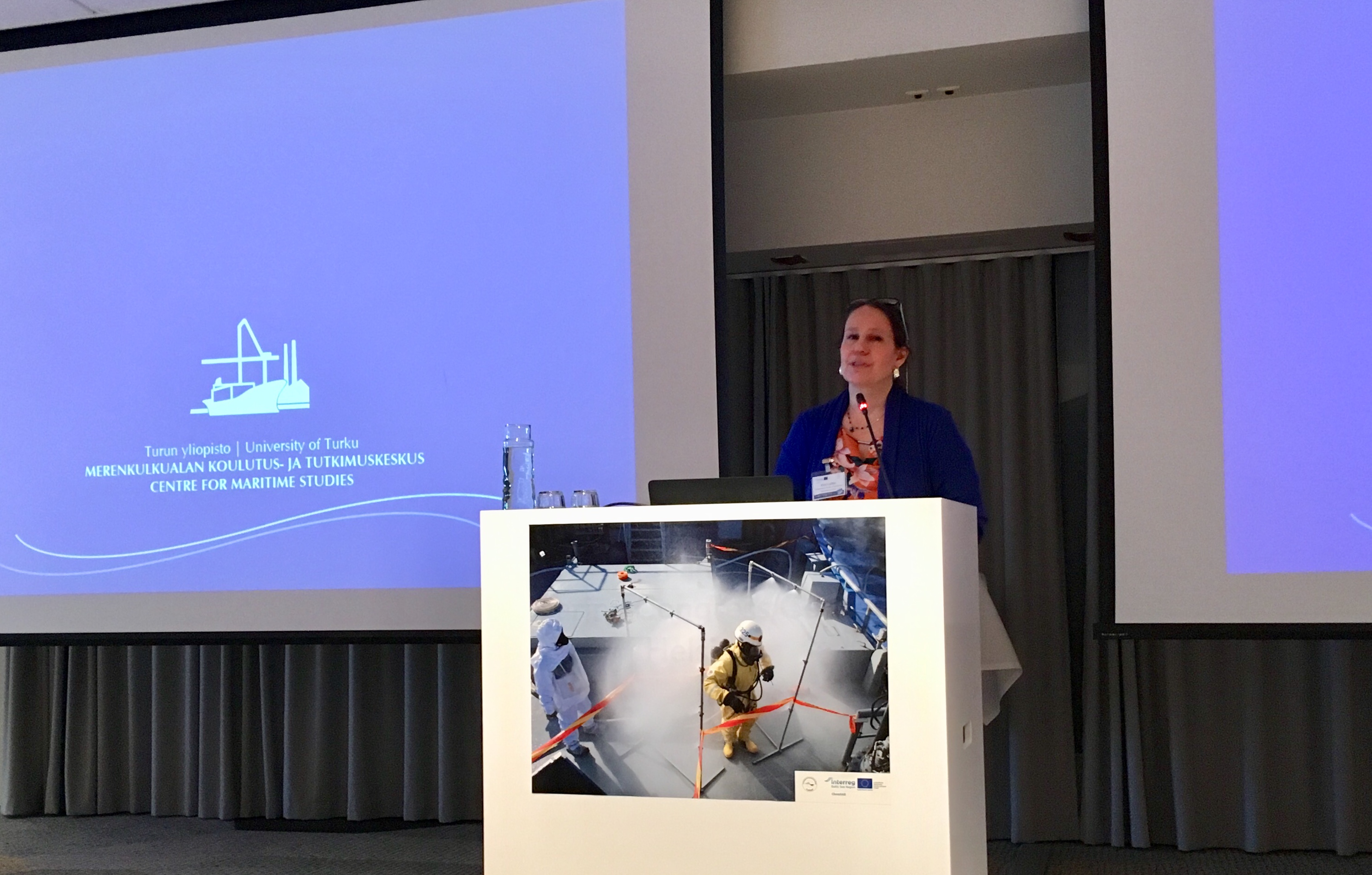
Rear Admiral Markku Hassinen from the Finnish Border Guard was also pleased that in ChemSAR project we have succeeded to enhance the safety of hazardous and noxious substances transportations in the Baltic Sea Region.

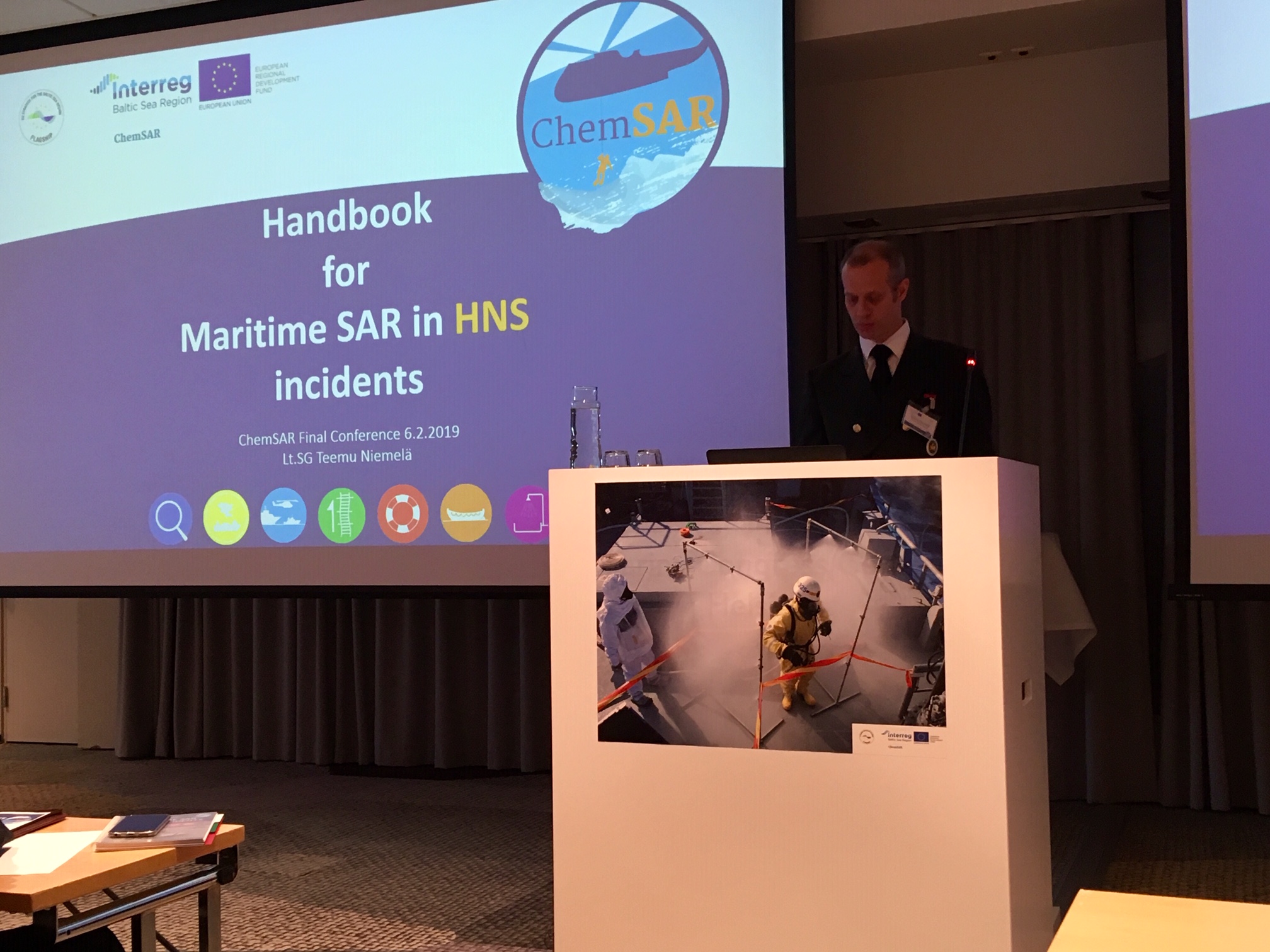
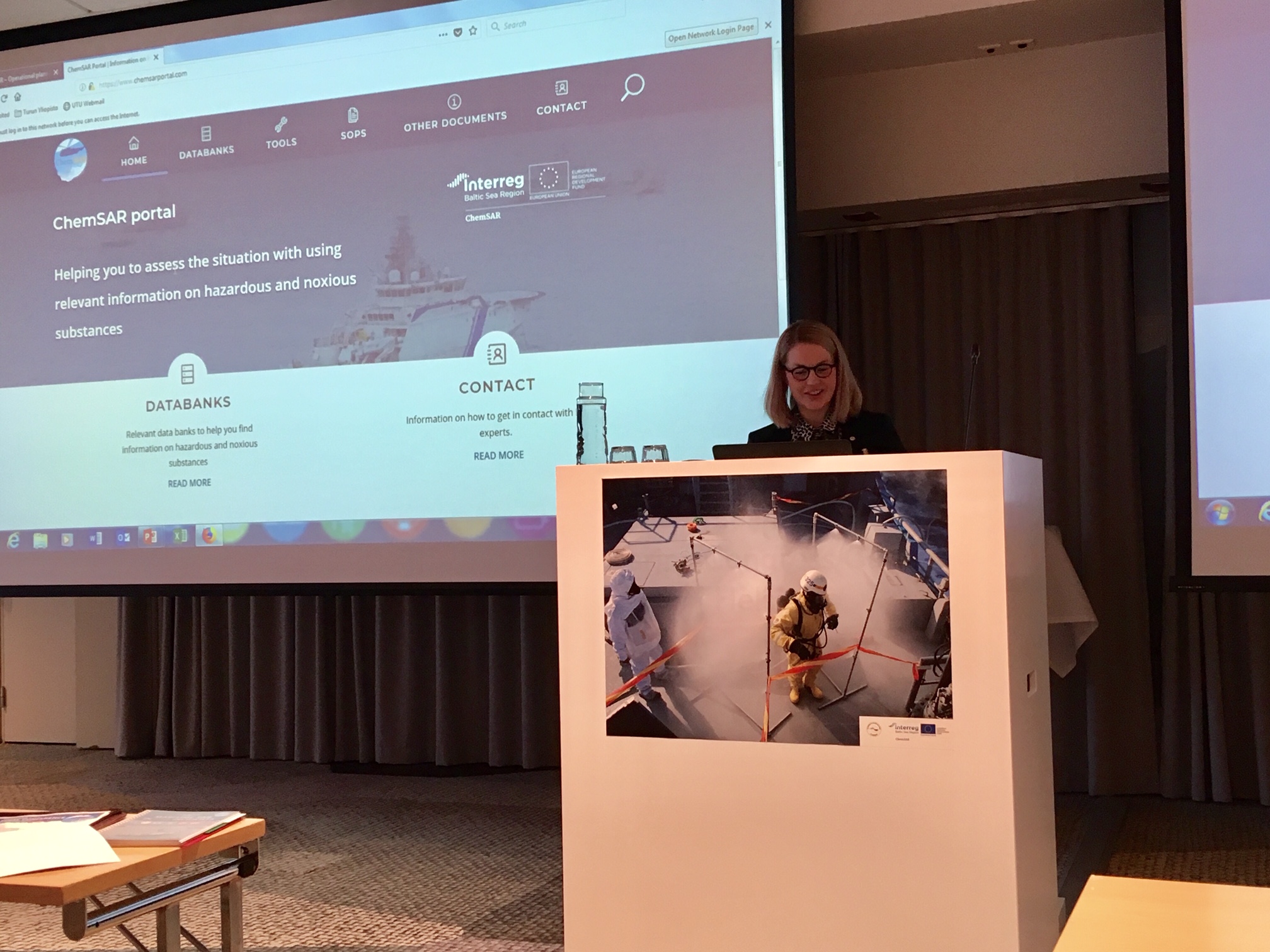
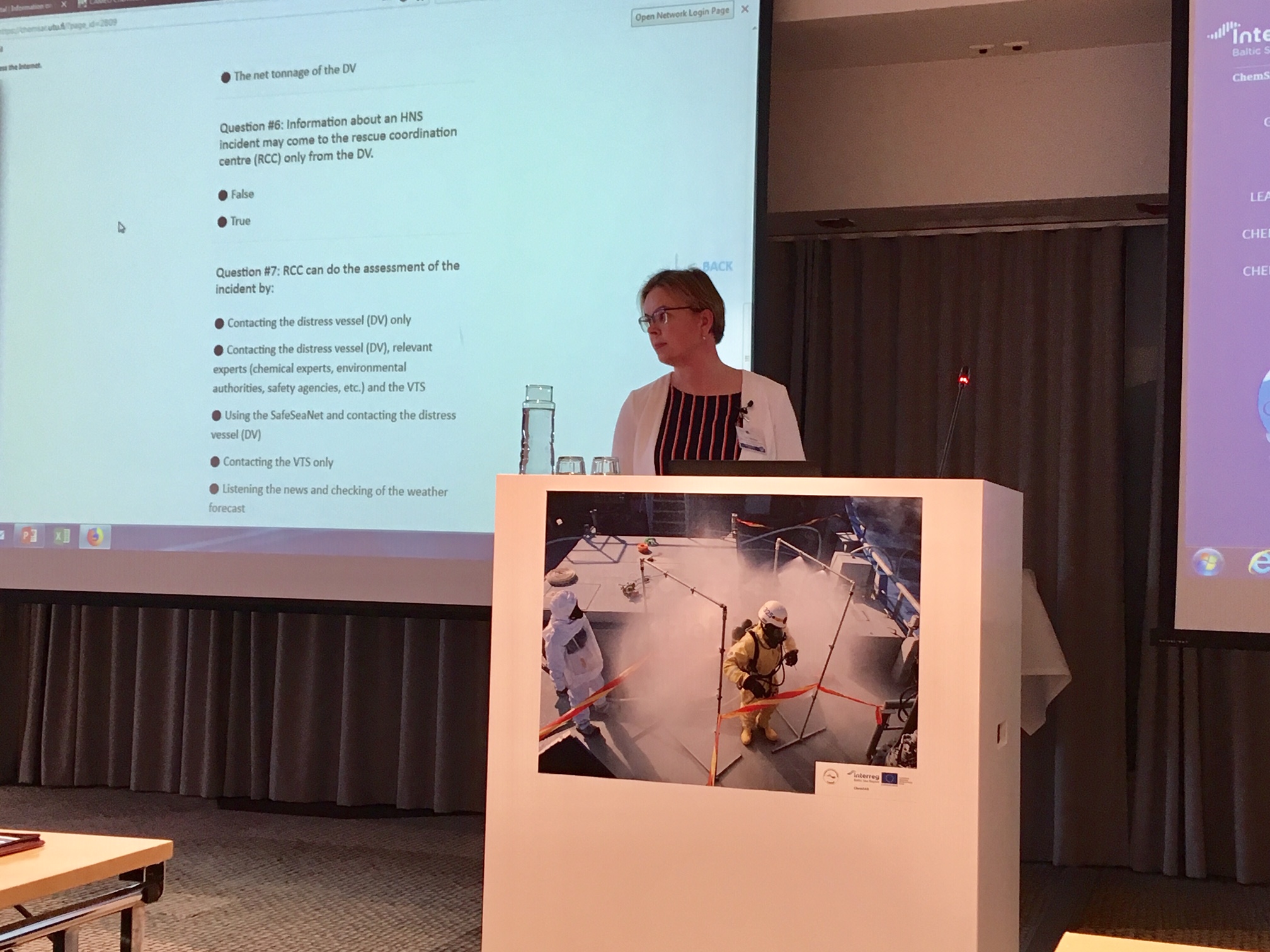
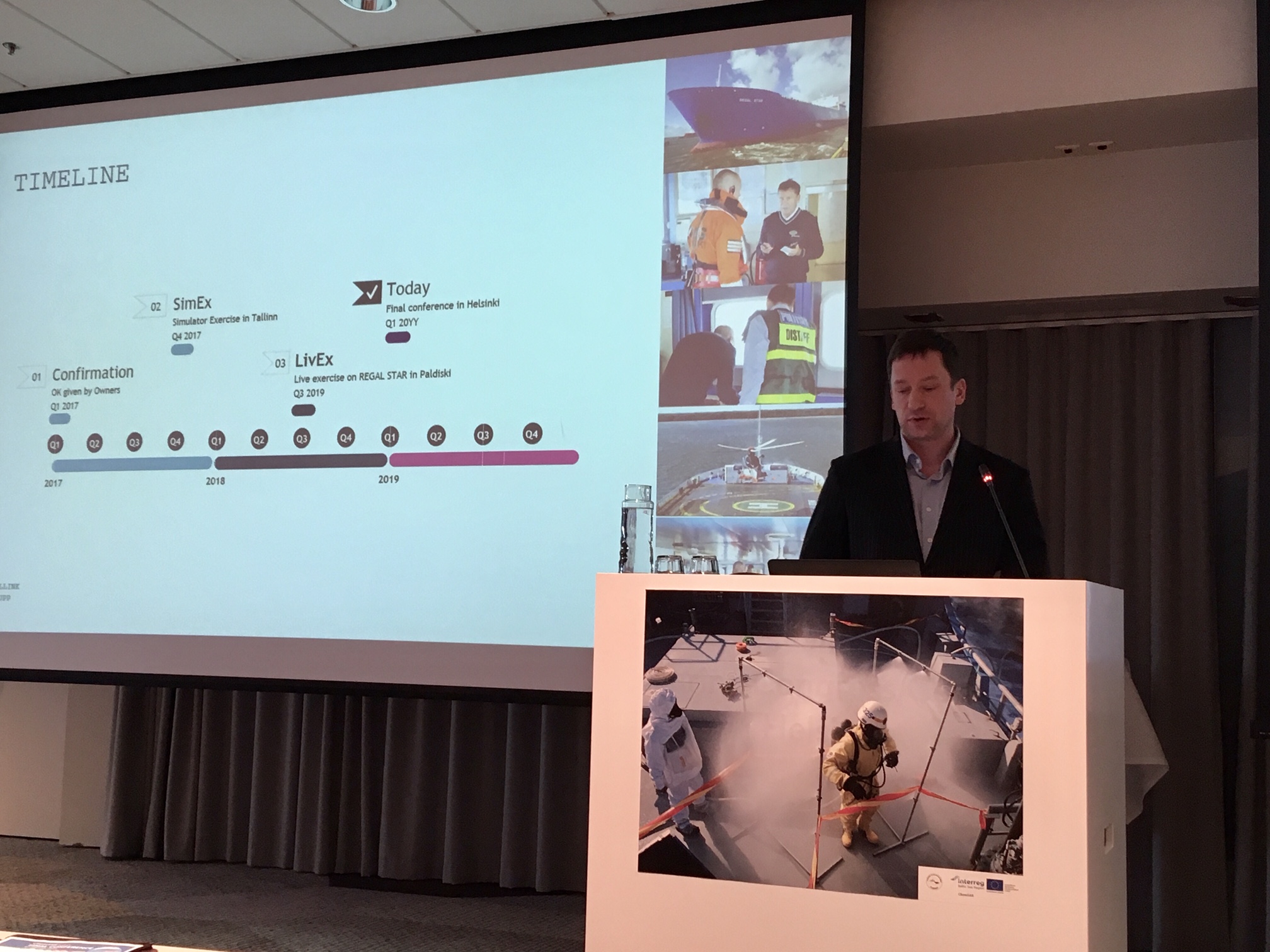

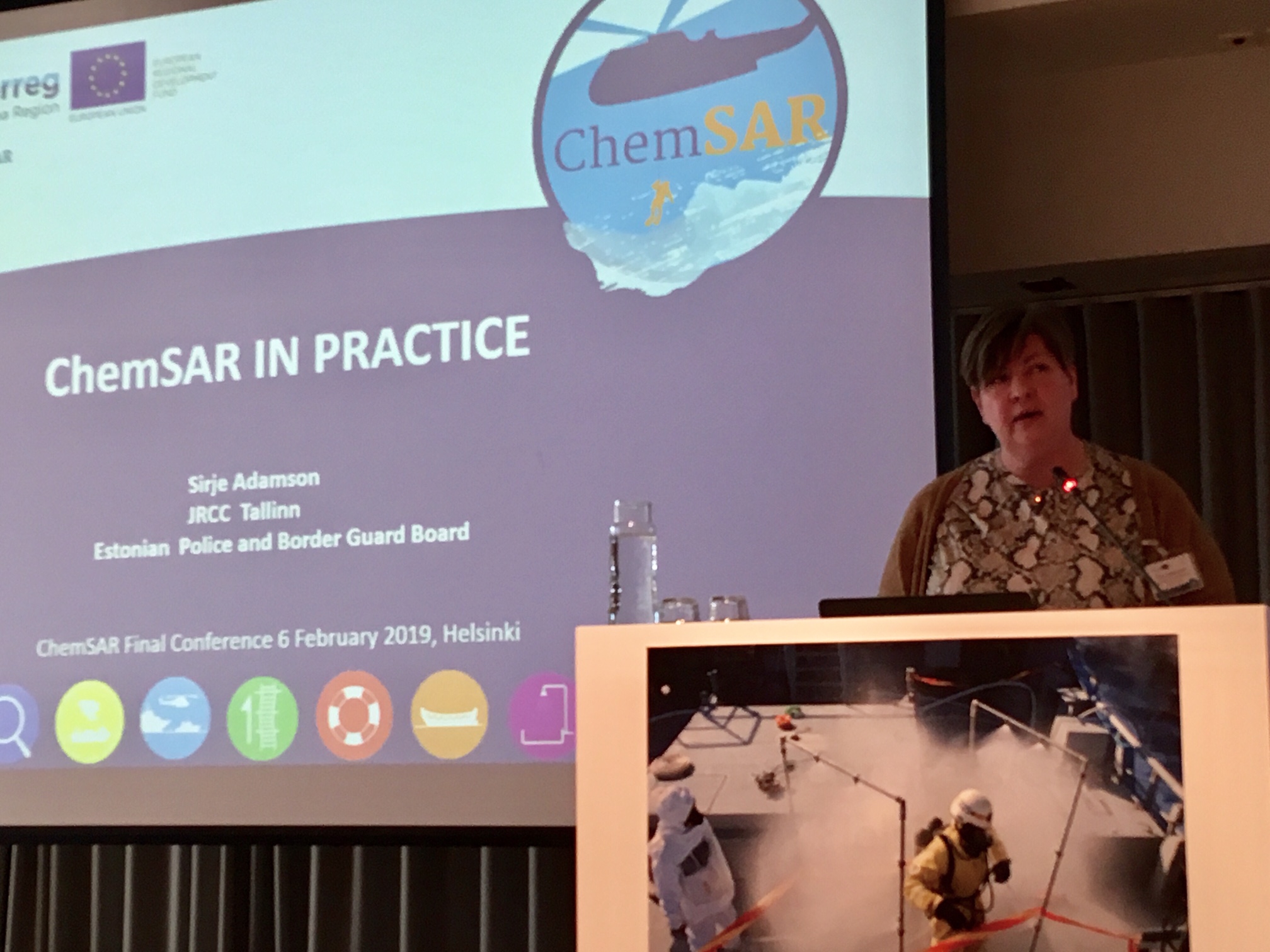
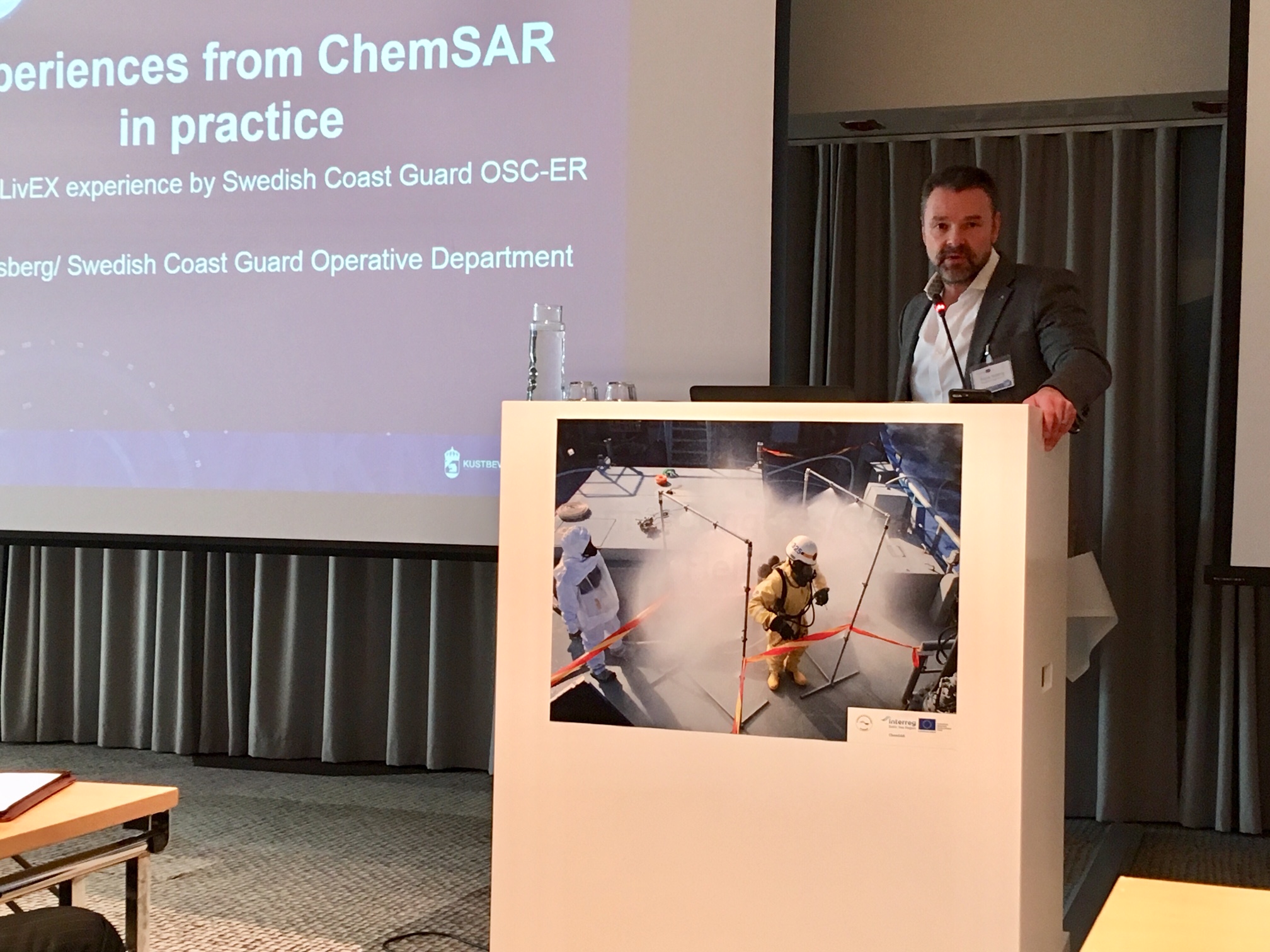
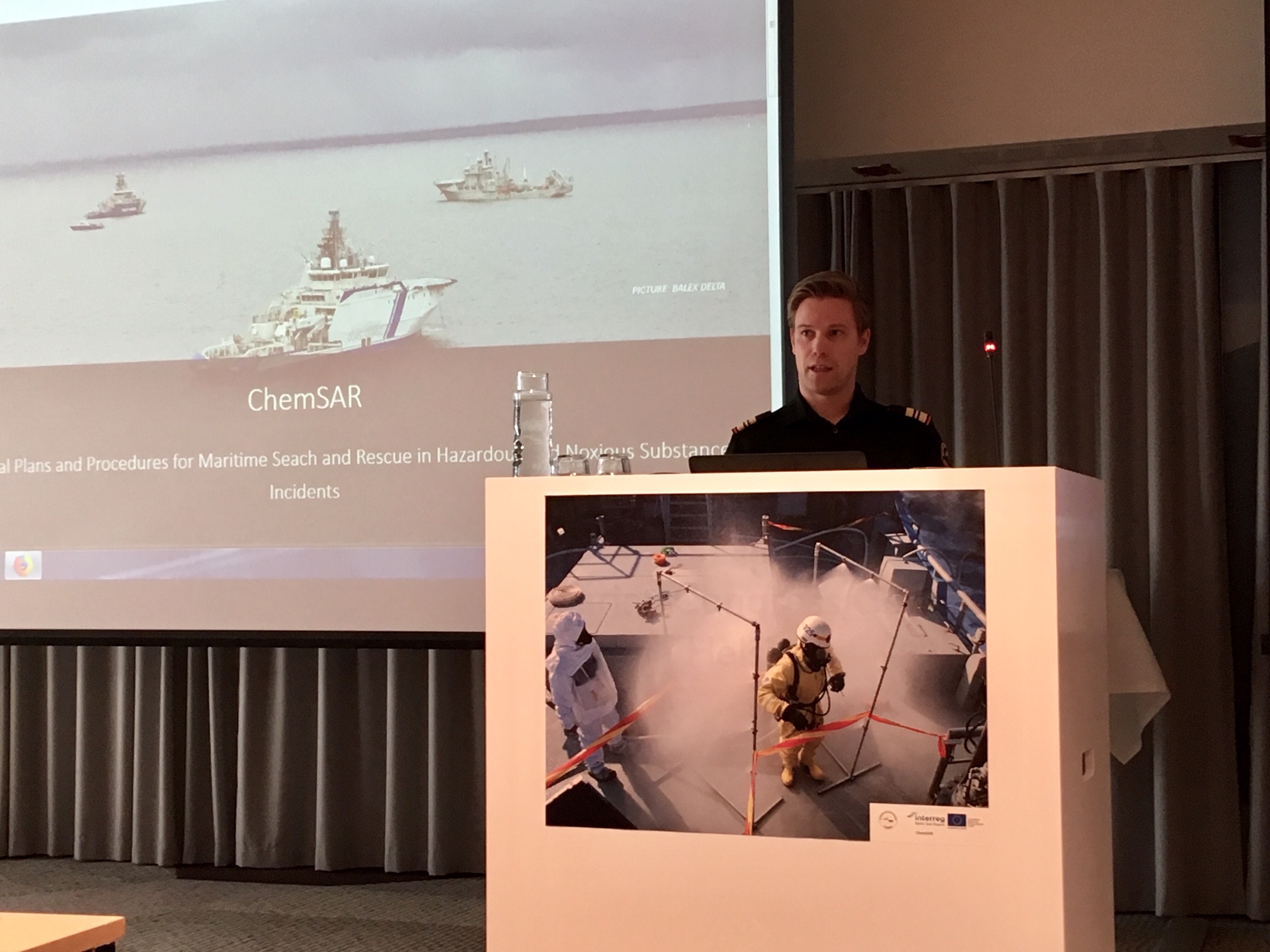
The ChemSAR Final Conference gathered 100 experts from nine European countries to hear about and discuss emergency preparedness at sea.
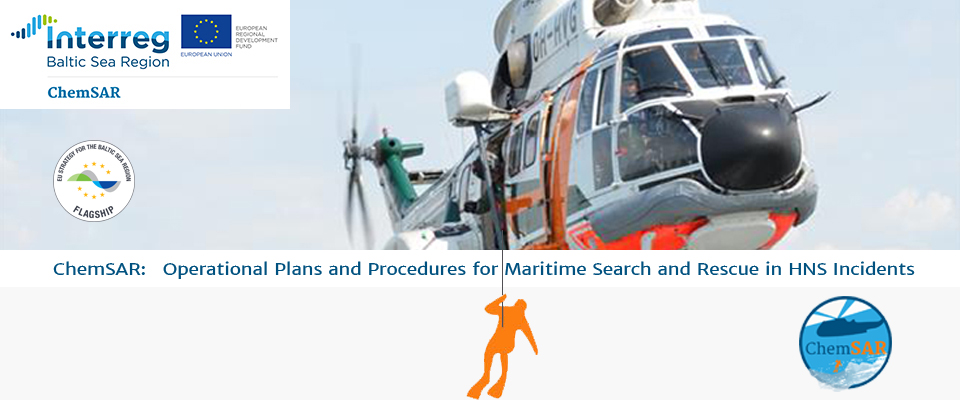
Leave a Reply